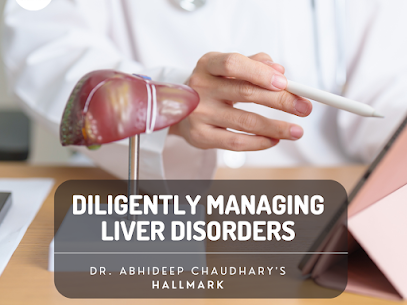
Hepatitis C, also known as HCV, is a severe liver infection initiated by the hepatitis C virus. While it often starts as a short-term infection, more than half of those infected develop a lifelong condition, especially if left untreated.
This is a significant concern in India, with an estimated 12 million people living with hepatitis C. IHPBLT is one of the best liver transplant in Delhi that has successfully done over 2000 liver transplants.
Understanding Hepatitis C:-
Hepatitis C, or hep C, can lead to severe complications if not addressed. The virus may cause cirrhosis, liver cancer, and kidney damage. Shockingly, many individuals with HCV are unaware of their condition due to its asymptomatic nature.
This underscores the importance of regular hepatitis C testing for all adults, as early detection is crucial.
Causes of Hepatitis C:-
The transmission of Hep C occurs when blood from an infected person enters the body of someone who is not infected. Common modes of transmission include unsafe needle practices, improper sterilization of tattooing or piercing equipment, sharing personal care products, and, during pregnancy, from an infected mother to her baby.
Notably, you cannot contract HCV through casual contact, such as sharing food, hugging, kissing, or breastfeeding.
Risk Factors and Complications:-
Certain factors elevate the risk of contracting Hepatitis C, including being born between 1945 and 1965, having HIV or AIDS, engaging in high-risk behaviors like IV drug use, having homemade tattoos or piercings, and having unprotected sex with multiple partners.
Additionally, those who received a blood transfusion before 1992, received blood-clotting products before 1987, or underwent long-term kidney dialysis are at increased risk.
Undiagnosed or untreated hepatitis C can lead to severe complications such as cirrhosis, liver cancer, and liver failure.
Prevention of Hepatitis C:-
Several preventive measures can significantly reduce the risk of contracting Hepatitis C:
- Never share or reuse needles.
- Avoid sharing personal-care products like toothbrushes or razors.
- If pregnant, allow your ob-gyn to test and treat you.
- Use a condom during sex.
- Limit the number of sexual partners.
IHPBLT’s Commitment to Hepatitis C Care:-
IHPBLT at BLK Hospital, led by the renowned Dr. Abhideep Chaudhary, stands as the best liver transplant in Delhi, catering to patients worldwide with the highest success rates.
Our experts have been at the forefront of testing new antiviral medicines for hepatitis C, bringing about groundbreaking advancements in treatment.
The comprehensive care team at IHPBLT includes hepatologists, physicians, nurses, clinical pharmacologists, and psychiatrists.
Symptoms and Diagnosis:-
Hepatitis C is particularly dangerous because many individuals do not exhibit symptoms or may experience symptoms that temporarily disappear.
Symptoms may include severe fatigue, stomach pain, nausea, loss of appetite, dark urine, itching, and jaundice. A blood test is essential for diagnosing HCV, with the CDC recommending testing for all adults at least once.
Regular testing is also advised for IV drug users and individuals on dialysis.
Treatment of Hepatitis C:-
Recent antiviral drugs have revolutionized the treatment landscape for Hepatitis C, with a cure being possible if diagnosed early. IHPBLT utilizes tailored treatment plans, combining newer drugs with older medicines for optimal results. Medication helps prevent further liver damage, and advanced options with fewer side effects have improved patient outcomes.
In cases of advanced Hepatitis C where medication is ineffective, a liver transplant may be necessary. IHPBLT seamlessly collaborates with the UPMC Liver Transplant Program, providing comprehensive care for patients in need of transplant procedures.
Is Hepatitis C Curable?
Significant progress in medical interventions has introduced exceptionally efficient antiviral drugs referred to as direct-acting antivirals (DAAs). These drugs have transformed the landscape of hepatitis C treatment, demonstrating the capability to cure the infection in a majority of instances. The duration of treatment may differ based on the particular regimen recommended by the healthcare provider. It is crucial for individuals diagnosed with hepatitis C to seek guidance from a healthcare professional for an assessment of the most suitable treatment options tailored to their specific circumstances.
Conclusion
Hepatitis C is a serious health concern, but with proactive testing, effective treatment, and the expertise of IHPBLT at BLK Hospital, individuals can navigate their journey to recovery successfully. Regular testing, preventive measures, and access to advanced medical care are pivotal in combating the challenges posed by Hepatitis C. IHPBLT, with its dedicated team and state-of-the-art facilities, remains steadfast in its commitment to providing the best liver transplant in Delhi




